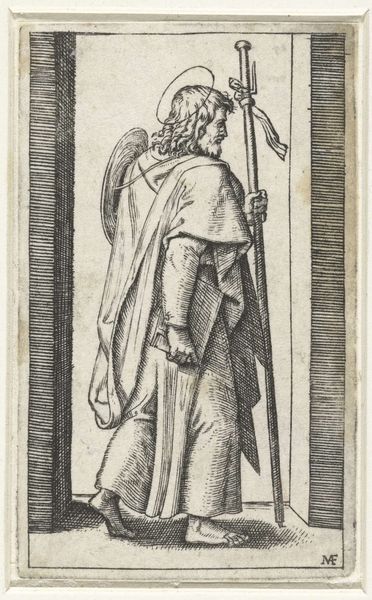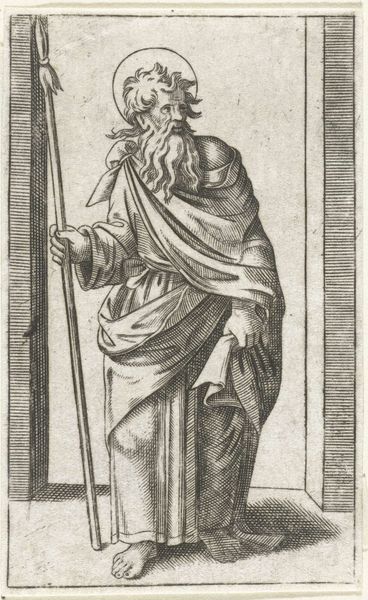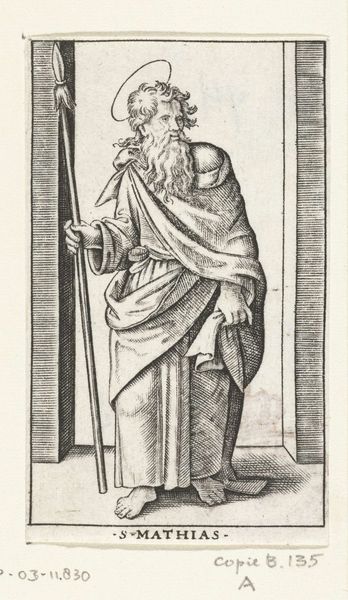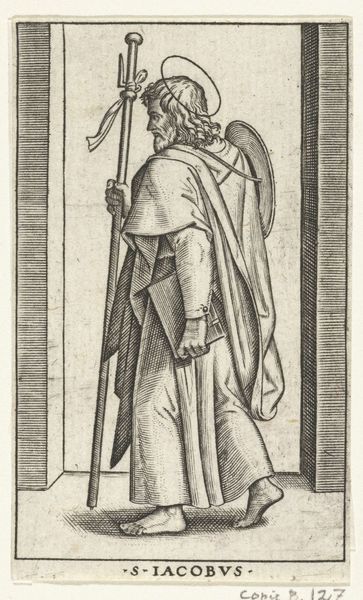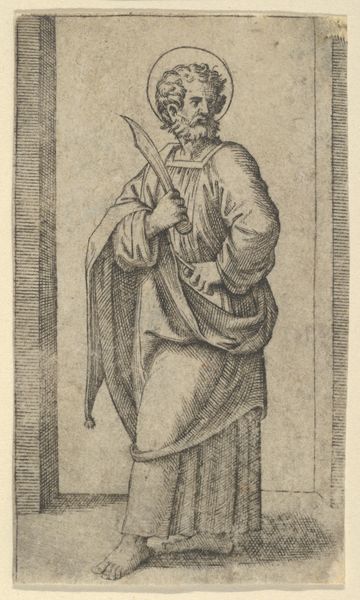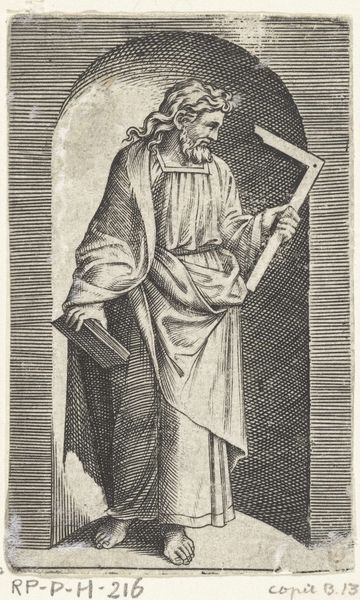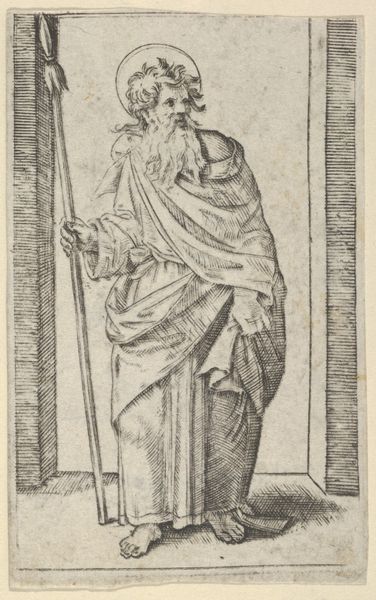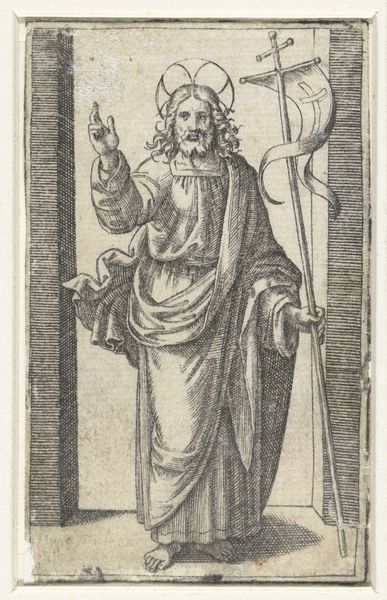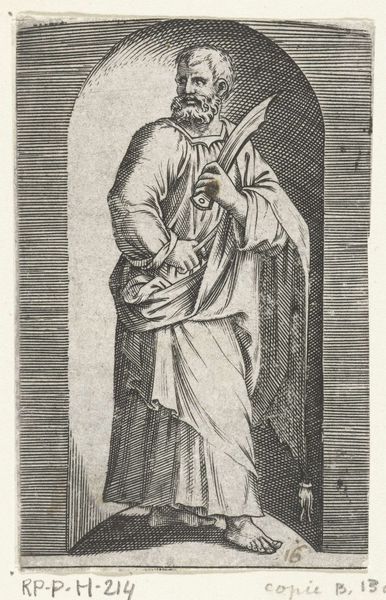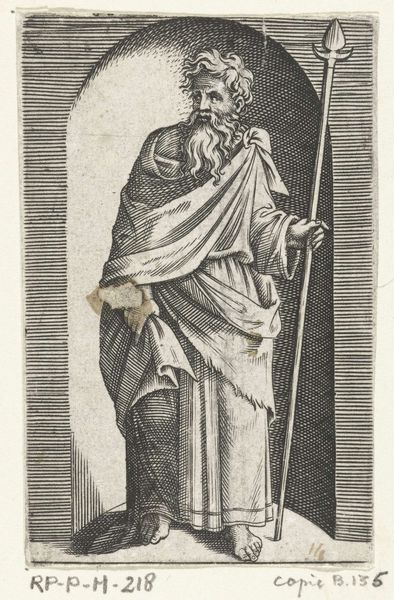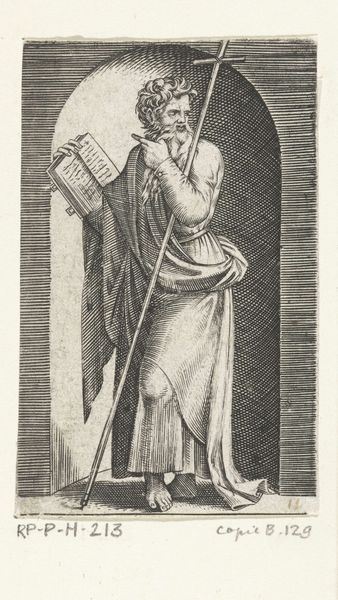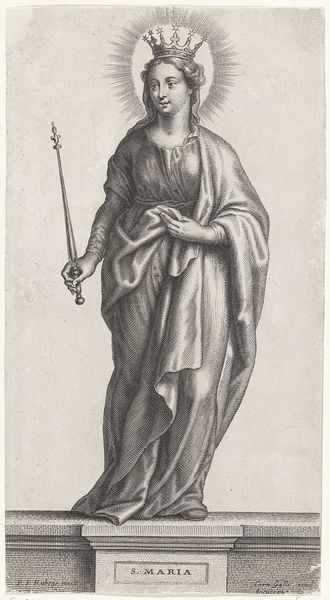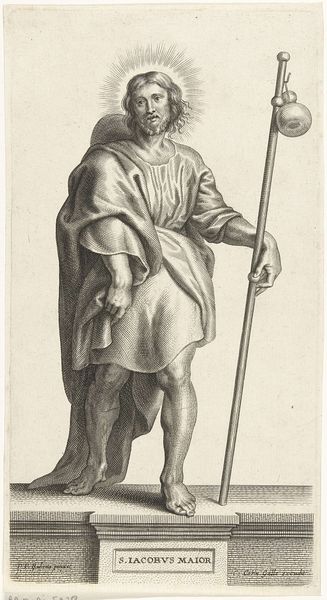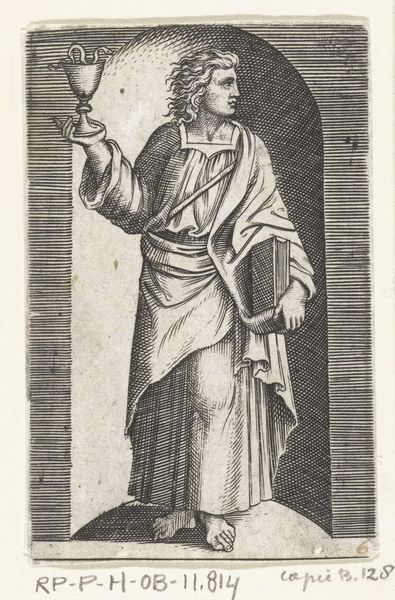
Apostel Jakobus de Meerdere (Major) met pelgrimshoed en pelgrimsstaf in nis 1517 - 1577
0:00
0:00
anonymous
Rijksmuseum
print, engraving
#
portrait
#
pencil drawn
# print
#
mannerism
#
figuration
#
engraving
Dimensions: height 80 mm, width 51 mm
Copyright: Rijks Museum: Open Domain
Editor: This is an engraving of Saint James the Major, made sometime between 1517 and 1577. It’s at the Rijksmuseum, though the artist is anonymous. He’s shown as a pilgrim and looks quite imposing, doesn't he? How would you interpret the symbolism in this image? Curator: It's compelling how the pilgrim's staff, for example, acts as both support and a signifier of journey. A journey can mean a physical trek or a profound shift in psychological awareness. Do you notice the shell on his shoulder? Editor: Yes, it’s small, but noticeable. Curator: That scallop shell is the emblem of St. James, tying him specifically to pilgrimage routes to Santiago de Compostela. It signified that the bearer was on a sacred quest. Pilgrimages transform a person. It changes how one sees the world and their place in it. How do you think the original viewers perceived it? Editor: I guess they might have seen it as a sign of hope or perhaps inspiration for their own journeys. Curator: Precisely. Or perhaps a call to reflect on their own spiritual journeys. And the book? It’s not just any book, is it? What significance do you think a book would hold? Editor: Probably a holy text? Symbolising the importance of learning and devotion to their faith? Curator: Indeed! So we see St. James embodying a continuous connection between faith, journey, and the potential for inner transformation, wouldn't you say? Editor: That’s a great way to look at it. It's more than just a picture; it’s about internal exploration! Curator: Exactly, these historical symbols invite us to look at past values as reflections of our continuous human journeys.
Comments
No comments
Be the first to comment and join the conversation on the ultimate creative platform.
